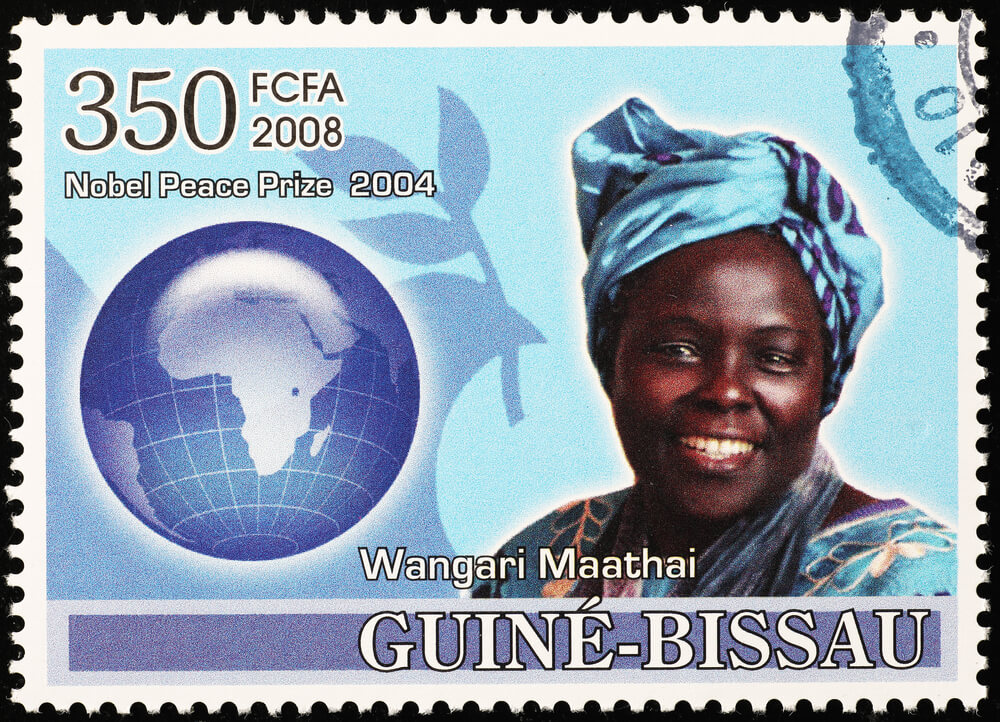Wangari Maathai was born on April 1, 1940 in Nyeri, Kenya. She is renowned for becoming the first female scholar from central and East Africa to take a biology doctorate. Maathai has been a pioneer in many things that women had not experienced before. For example, Wangari Maathai was also the first female professor in Kenya, her home country.
Nobel Peace Work
On October 8, 2004, Wangari became the first African woman to get the Nobel Peace Prize due to her contribution to democracy, peace, and sustainable development. Wangari stood at the front in the fight to promote ecologically viable economic, cultural, and social development in Kenya and Africa at large.
Wangari courageously stood against oppressive regimes in Kenya. The unique methods of action implemented by Maathai attracted attention to political oppression internationally and nationally. Besides, she encouraged women to take leadership roles and inspired those interested in democratic rights fights.
Maathai combined social commitment, active politics, and science. Besides protecting the environment, her strategies were to secure the basis for ecology sustainability.
Maathai’s Environmental Work
Through the Green Belt Movement she founded in 1977, Maathai mobilized women to plant millions of trees. Other nations have adopted the Green Belt Movement method of mobilizing people to plant trees. Desertification was a significant threat that caused Wangari to affirm her forest protection ambitions.
The aim of mobilizing women was not just directed to tree planting; she aided the women in different areas such as women’s rights, international solidarity, and democracy. The Nobel Committee said that “She thinks globally and acts locally.”

